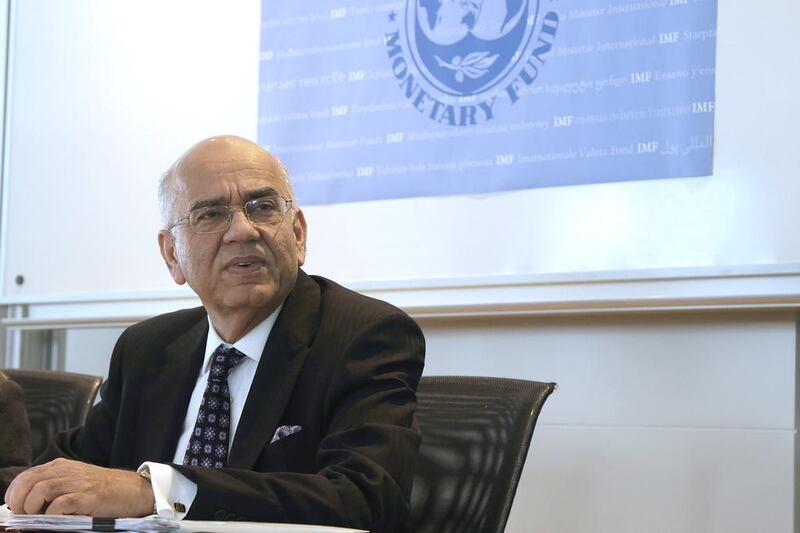The IMF has hailed progress by Arabian Gulf nations to plug budget deficits in the wake of the biggest drop in oil prices since the financial crash of 2008, but it said that efforts to diversify economies in the region should not lose momentum as risks that may impede growth are rising.
"The fundamental challenge for these countries is that they have to move to diversify their economies, that they have to create jobs outside of the oil sector and outside government to reduce the scope of government spending to better match revenue," Masood Ahmed, regional head of the IMF, told The National.
“Our message is that this a multi-year plan. You don’t have to do it all at once, but you can’t afford to postpone starting doing it, so please stay with it.”
Since the price of oil began its sharp descent in 2014, governments in the region have reduced energy subsidies, cut spending and raised debt in international markets to prevent deficits from spiralling out of control.
At the same time they have outlined ambitious plans to transform their oil-reliant economies by measures that include raising value-added taxation and selling off some stakes in major state companies like Saudi Arabia’s Aramco, the world’s largest oil producer.
In its latest regional outlook, released on yesterday, the IMF said that growth in the Middle East, North Africa and Pakistan is projected at 3.4 per cent both this year and next, raising the level of urgency for many of the countries in the Arabian Gulf to transform their economies.
The risks include the intensification of regional conflicts, a further slowdown in China, and the Fed raising interest rates more quickly than financial markets are pricing in. Oil prices are also likely to remain low for the coming years, the IMF said, but forecasts are subject to change because the volatility in crude markets and the unpredictable nature of armed conflicts such as those under way in countries including Yemen, Iraq, and Libya.
The price of oil has rebounded to about US$50 per barrel from a low of more than 10 years of less than $30 per barrel reached at the beginning of this year. Still, the IMF is predicting that oil prices will average $43 per barrel in 2016 and $51 per barrel next year, a far cry from the $100 per barrel average that the Arabian Gulf had been accustomed to in the years before 2014.
“Overall, growth risks are to the downside,” the IMF said in its report. “In particular, the negative impact of fiscal consolidation and tightening liquidity on growth could be greater than expected. Regional conflict and related adverse spillovers could intensify.
“The slump in oil prices and ongoing conflicts continue to weigh on Menap’s economic outlook,” it said. “Structural transformations are needed across the region to raise medium-term prospects and create jobs.
The GCC will grow only at 1.7 per cent this year, but the pace is forecast to pick up to 2.3 per cent as austerity is eased back. The UAE is projected to grow at 2.3 per cent this year and 2.5 per cent next year, while Saudi Arabia, the region’s biggest economy and the one most reliant on oil, is expected to experience economic growth of 2 per cent in 2017 from 1.2 per cent in 2016.
Separately, the Institute of International Finance, a global association of financial institutions, said in a report it published yesterday that it expected fiscal deficits in GCC countries to widen in 2016 as oil prices continue to wallow in the aftermath of the 2014 crash. Since then, a current account surplus of $223 billion has transformed into a $69bn deficit for the region’s states.
mkassem@thenational.ae
Follow The National's Business section on Twitter





